Coffee Break with Tyrone Adams
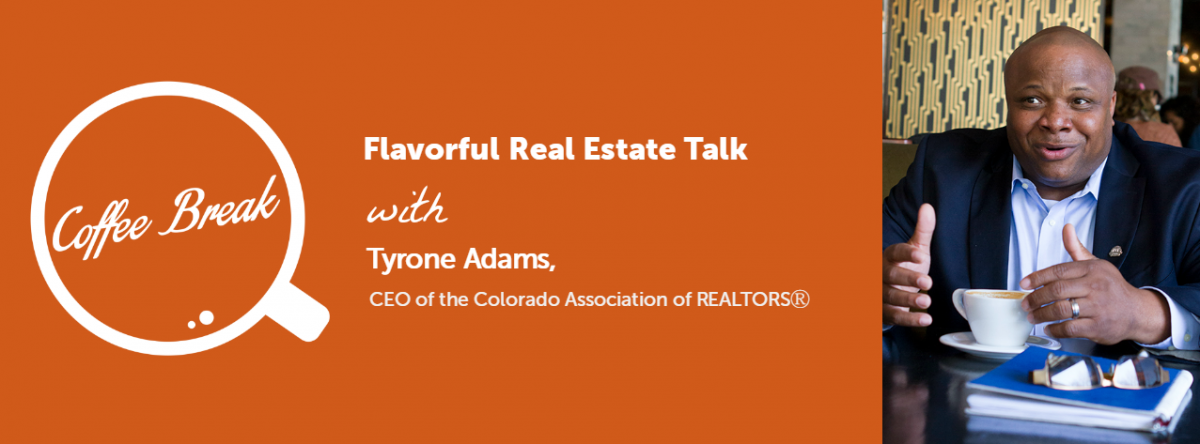
Recently we sat down with Tyrone Adams, CEO of the Colorado Association of REALTORS® (CAR) and learned more about his passions, how he manages his team, the challenges he’s faced, and how he’s adapting to his new position at CAR. A problem solver by nature, Tyrone’s honest drive to help and serve people is humbling. His positive energy is contagious and refreshing.
It was a pleasure to share a coffee with him at one of our favorite spots in Cap Hill - coffee shop by day, bar by night: Black Eye Coffee. The inviting atmosphere and beautiful 1920s art deco design, coupled with out of this world coffee and a simple, but imaginative menu made it the perfect spot to learn more about Tyrone.
► After you dig into the full interview, make sure to check out the Xpresso Round Video at the end of the post, which features Tyrone answering a few quick questions with plenty of smiles and laughs in between. This is your opportunity to learn what his nickname is, his favorite sports team (which surprisingly isn't a Denver one), and much more.
DMAR: Can you tell us a bit about yourself and how you got into the real estate industry?
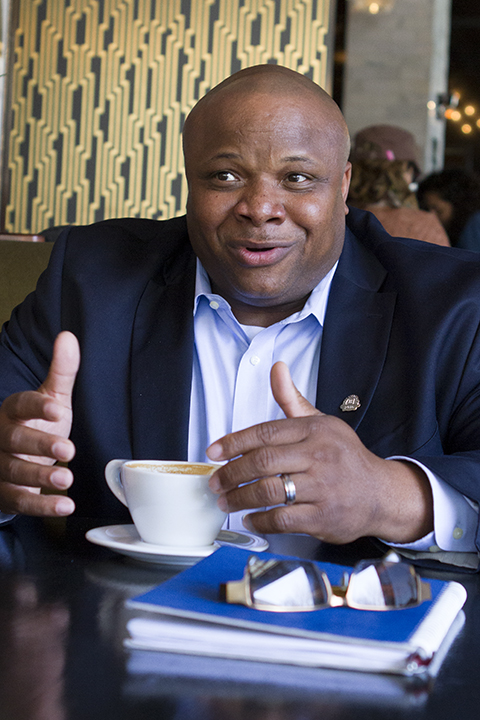
Tyrone: My background is in journalism with an emphasis in advertising. I graduated from the University of Northern Colorado in 1992. I started looking for jobs but at that time there weren't a lot of openings in the communications field. Then an ad in the paper caught my eye. It was a position for an Events and Communications Coordinator at the Colorado Association of REALTORSⓇ. That was in 1993, and 23 years later I'm still with the association. I must tell you, it’s been a true pleasure to be part of the association. I'm so grateful for all the members and all the people that I’ve met over the years.
D: You’re a Denver native, which is rare these days. Tell us a bit about how it was growing up in Denver.
T: I would say that times were simpler when I was growing up in East Side Denver, the Martin Luther King/Colorado Boulevard/Park Hill area. We would ride our bikes everywhere and were able to just stay outside and play. My mother’s motto was: “Be home before the streetlights are on.” I'm one of five kids and we learned how to network, how to stretch our boundaries, and how to play with other kids. In the '70s it was a very diverse area. You met people of all walks of life, and we embraced that as part of our culture.
In the '70s it was a very diverse area. You met people of all walks of life, and we embraced that as part of our culture.
D: How has that neighborhood changed?
T: With the redevelopment of the Five Points area you see a big migration shift. People can no longer afford to live in that area. They might have bought their homes in the '60s for $13,000 or $15,000, but now they can't even afford the taxes. So people are moving out to the suburbs, which is a new way of living for a lot of people. And I’ve got to tell you, the public transportation back then was awesome. But now families move out to the suburbs and unfortunately they don't have great access to public transportation. That's pretty tough, especially for my kids. We moved out to South East Aurora - for a better school district, - and we ended up taking our kids everywhere. I wasn't used to that. Growing up my mother didn’t take us anywhere… we found a way to get there.
D: Describe your job as CEO of CAR.
T: It was a big shift for me. I started off as the Communications, Meetings & Events Assistant at CAR, I progressed to VP of Communications, Meetings & Events, and then to VP of Member Services. I was definitely used to having my hands in the mix and being involved in the details. Now as the CEO, it's really about managing people and providing the tools that my staff needs, as well as developing and nurturing a company culture. On the volunteer side, it's about working with them to make sure that their needs are met and that they have the information they need to assist our membership.
Now as the CEO, it's really about managing people and providing the tools that my staff needs, as well as developing and nurturing a company culture.
 D: Walk us through a day in your life.
D: Walk us through a day in your life.
T: My day is never the same, which I love. When I come into work I try to think about a thank-you note that I can send to someone that day. That sets the tone for me for the entire day... simply having gratitude and being thankful for the people I have in my life. The second thing I do is read The Denver Post and the Denver Business Journal. I prefer a physical copy.
The last thing I do before I leave is walk through the office and make sure that I say goodbye to anyone who’s left. I think that it's important for them to understand that I'm present, that I’m not just somebody in the corner that they don't get to see very often, and that they can depend on me. I want to make sure that I'm accessible to my staff.
The last thing I do before I leave work is walk through the office and make sure that I say goodbye to anyone who’s left.
D: What’s your favorite part of your day and what’s your least favorite?
T: I can't say I have a favorite part because it varies so much. Meeting the needs of 20 people on staff, 16 people on leadership, over 22,900 members across Colorado, and everyone from the local associations can make my days crazy. But I love the uncertainty. That's the best part of my job, the fact that I get to meet so many people and try to help them. I feel like I'm a problem solver and that I build bridges between people and organizations.
The worst part of my day? I'd probably have to say that it’s around this time of the day, around 2:00 PM. That’s because I'm a morning person. I get up at 4:00 AM and I do a lot of things to get myself prepared for the day. So I hit my low at about this time.
D: So what do you do to shake off that feeling?
T: (laughs) Look, I'm not ashamed to say that I take a short nap. I close my eyes for about 10 minutes and just zone out. Or I’ll simply get up and walk around or drink some coffee or water. We put a shuffle board in the office, it was one of the first things I did when I became CEO. It’s not for the sake of the game, it's for the interaction. We want intentional interaction in our office. We have had great conversations about work over shuffleboard. Now, I'm trying to win every time, don't get me wrong! (laughs)
That is the best part of my job, the fact that I get to meet so many people and try to help them. I feel like I'm a problem solver, and that I build bridges between people and organizations.
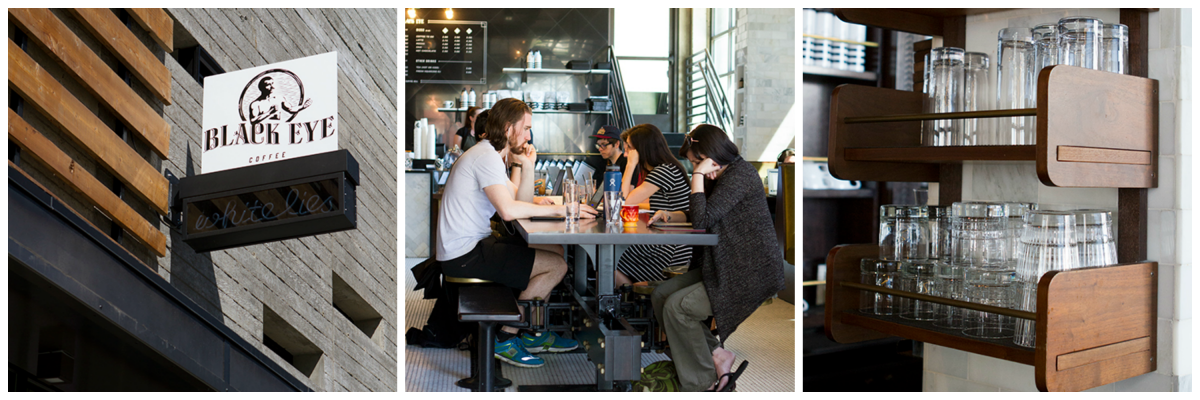
D: Sounds like a fun office. How would you describe the company culture at CAR?
T: We do have fun in our office. We like to laugh, we like to tease each other, but our number one priority is serving our members. We work hard and collaborate a lot. There are no silos in our association, there is linkage everywhere. We need that in order to make sure that we produce the best products and services for our members. And like I mentioned, we like to do things differently. We still have our regular meetings, but sometimes we'll go on our patio and grill some burgers or some brats, and just sit and talk. We're breaking bread with each other, which brings us closer. We spend a lot of time there together so it makes sense to embrace each other, respect each other, and have fun doing what we're doing.
There are no silos in our association, there is linkage everywhere. We need that in order to make sure that we produce the best products or services for our members.
D: How has your background in marketing and communications helped you in your current role?
T: I learned that I need to listen and not be too quick to speak. Sometimes people don't even need anything from you, they just want you to listen. This gives me insight into meeting the needs of the members, and understanding the needs of my staff and leadership. Case and point, a couple of weeks ago myself and Alan Lovitt, the Chair of CAR, decided to visit five REALTOR® boards in the mountain area. It took us two days total to drive up there and meet with them. During our meetings the boards' leadership did most of the talking, and we did most of the listening. All that’s worth it for us because we don’t have all the answers unless we ask questions.
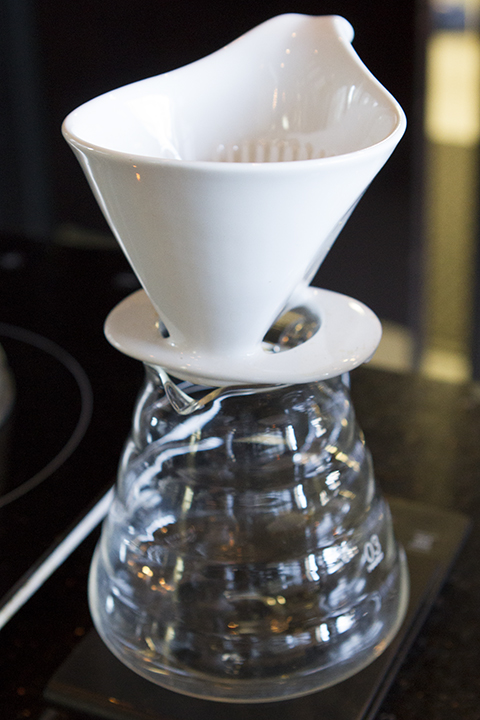
I learned that I need to listen and not be too quick to speak. Sometimes people don't even need anything from you, they just want you to listen.
D: What traits do you think make a good leader or CEO?
T: Being a good listener, being able to communicate in any capacity, inspiring people, and doing what you say you're going to do. You have to build credibility and be reputable. But you also have to show that you're human and that it’s okay to take risks and fail because that's where you gain your most valuable experiences. As a leader, it’s important to identify where people's passions lie. I also think that you have to trust your staff. If you start micro-managing your team, they're not going to give their best and you’re also taking away their opportunity to grow.
You have to build credibility and be reputable. But you also have to show that you're human and that it’s okay to take risks and fail because that's where you gain your most valuable experiences.
D: Your motto on LinkedIn is, "there are always opportunities in challenges." What has been the greatest challenge you’ve faced in your career, and what opportunities did you meet as a result?
T: One of the biggest challenges that I've had to deal with was people's doubt. Growing up, I was a smaller kid and I feel like I was always the one who was overlooked. I'm more of a quiet person. So my challenge was figuring out how to put myself out there. I used those challenges to make myself better.
When faced with doubt, my competitive streak kicks in and I want to show people that they're missing an opportunity with me. I succeeded in beating the odds by being the first one in my family to graduate from college and by becoming the only CEO in my family tree. I had asthma and wasn't supposed to play sports, yet I got a football scholarship and even ran track! All because they said I couldn't do it.
When faced with doubt, my competitive streak kicks in and I want to show people that they're missing an opportunity with me.
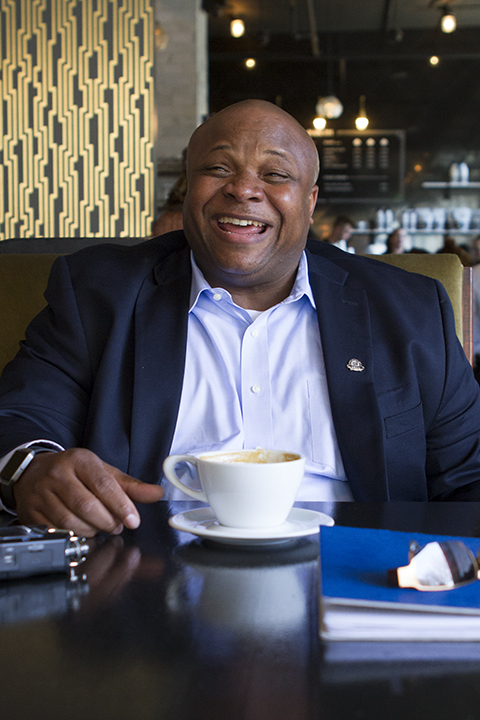 D: Managing people is harder that it looks. How do you do it?
D: Managing people is harder that it looks. How do you do it?
T: It’s all about finding each person’s gift and once you understand that, that's how you build your team.
D: When communication breaks down in a personal or professional relationship, how do you fix the problem?
T: No matter what, they're always going to be disagreements between team members. All you need to do is sit down and talk it out. We can agree to disagree but at least you know where everybody's coming from, otherwise there's that anxiety between you. As a CEO, I need to make sure that my team comes together and talks things out. I always say to them, “Look you don't have to like each other when you're outside these walls, but we need to respect one another and listen to one another.” You also have to follow-up. You can put a fire out but if it's still smoldering underneath, it can easily start again.
You also have to follow up. You can put a fire out but if it's still smoldering underneath, it can easily start again.
 D: How has your coaching background helped you in your career?
D: How has your coaching background helped you in your career?
T: I think it has helped me immensely. Coaching is more than just a sport. It’s learning leadership, accountability, and respect for one another. It’s about preparing yourself as an individual, which then makes you better for your team.
D: What is your biggest professional fear?
T: Not being able to help people or not being able to solve problems. There are some challenges that don't have real solutions. Some things are what they are, and that drives me nuts because I always strive to find solutions.
D: What are your goals for CAR?
T: Membership outreach - getting out there, supporting the local associations, and getting feedback from our members. Our mission is to protect private property rights, and make our members more successful, but we can't do that in our own building. We need to get out there and talk to them in their own backyards where they feel comfortable. They appreciate that since we show that we’re human and we’re not just this big organization.
D: What is the biggest challenge currently facing the real estate industry?
T: Lack of affordable housing. The truth is, first-time home buyers really have no place to go. There's some construction in Denver but most of it is high-end. The millennial debt is astronomical, so how do you balance all that? If we push the construction defects issue - and maybe that's not the overall answer to this problem - but if there's a way to build more affordable housing, we can show that homeownership is for everyone.
The truth is, first-time home buyers really have no place to go.
D: Whom do you respect most in the industry?
T: (laughs) That’s a loaded question. Do I have to name names? Is this what this is all about?
D: Ok, than tell us who in particular has inspired you.
T: I would have to say, longevity-wise, Chris McElroy has been one person who has inspired me along the way, and was actually my second President that I had to serve under at CAR. So I've known him and his family for a very, very long time. But there are just so many people that I owe a debt of gratitude to. Many past leaders and members have inspired me and supported me in my endeavor to even get to this position.
D: If you were to work in any industry other than real estate, which would it be and why?
T: I love working with kids. One of my first jobs was as an assistant counselor at Red Shield down in east Denver. I was also a student counselor at the University of Northern Colorado, so I was responsible for getting kids to their summer school classes, planning their activities, and making sure they were in bed and not running around in the middle of the night. Later on, I got into coaching high school football. Also, about eight years ago, I became a casa, which is a court appointed special advocate for abused and neglected children who are in difficult situations at home. You advocate for the children's rights and make sure that they have the basic needs covered to continue to grow.
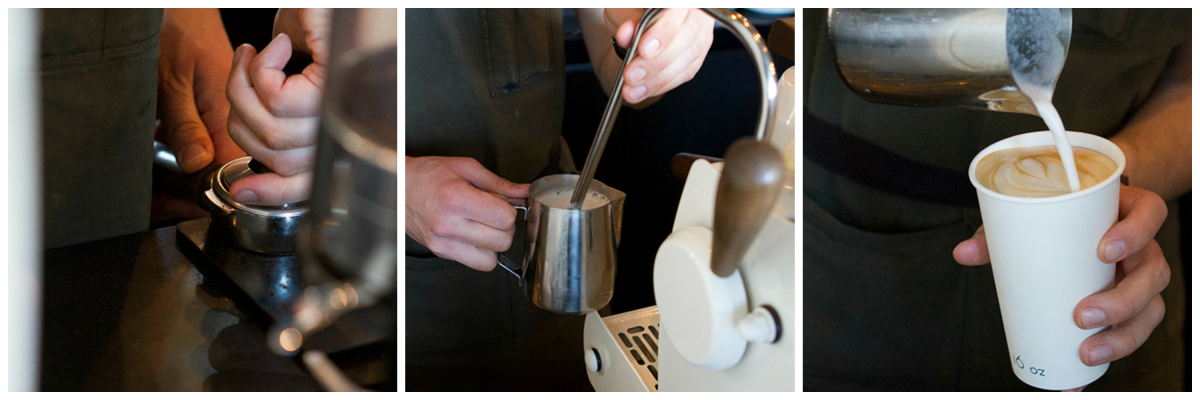
D: If you could change anything about your career path, what would that be?
T: I think the only thing I would change is maybe try to expand my knowledge a little bit faster. When I started out at CAR, I wanted to make sure that I did well in my position but I feel like I didn't take the time to look deeper into the association and the industry as a whole. That would be the only thing I would change. Everything else I went through - even the bad - was awesome.
When I started out at CAR, I wanted to make sure that I did well in my position but I feel like I didn't take the time to look deeper into the association and the industry as a whole.
D: How do you deal with stress?
T: Work out and listen to music. I try not to stress out too much though. I believe that the glass is half-full. At the end of the day, it's going to work out no matter what so I try to keep my stress to a minimum.
D: Tell us something about you that perhaps not a lot of people know.
T: (laughs) There's a reason why they don't know! Hmm… I was in the marching band and I played the trumpet. I didn't give that up until I started playing football in high school.
D: Do you still play?
T: I don't, but I still have my trumpet. I'll go to my garage and blow it every now and then. The keys are sticky and it needs to be cleaned out, but maybe one day I might pick it up and try to rekindle that fire that I used to have for the trumpet.
D: How would you describe your relationship with coffee?
T: The first time I had a coffee I thought it was nasty. I took a sip out of my mother's coffee when she walked out of the room, and it was the nastiest thing I've ever tasted. So I didn't start drinking coffee until I was in my thirties. Now, I put honey at the bottom of my cup, then the coffee on top of it, and nothing else. Then I let it sit there and get lukewarm before I'll drink it. I can’t drink hot coffee… my wife thinks I'm crazy.
Xpresso Round: Quick Questions & Answers



